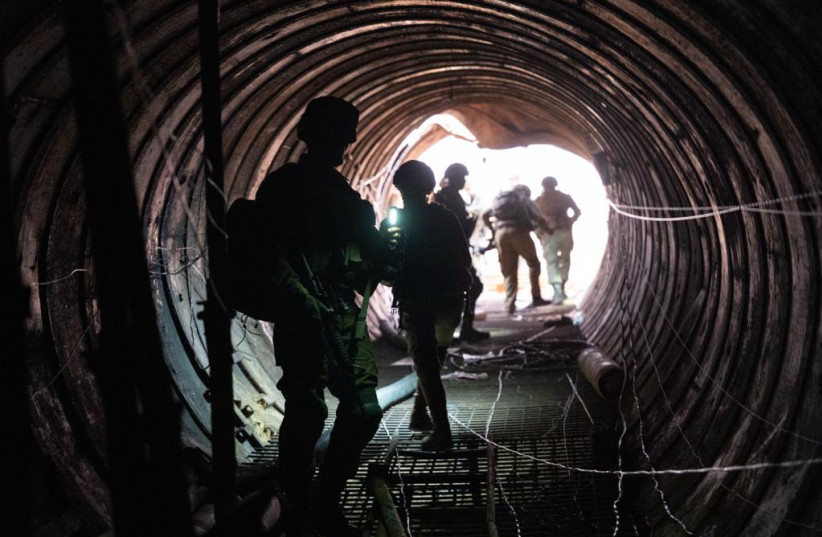Here’s why Israel still needs a hostage deal despite the amazing rescue op.
The rescue of the four hostages on Saturday, the third of its kind in this current war, was phenomenal, tactically, and will undoubtedly be made into a movie and taught to special forces teams around the world in the future.
However, this probably will not change the fundamental standoff between Israel and Hamas in which the Gazan terror group continues to wield leverage that will eventually compel Jerusalem to cut a deal to get the around 120 hostages remaining (probably only about half of whom are still alive), back.
There are a few reasons as to why this is true.
Why a hostage deal is still necessary
First, all three successful rescue operations of live hostages occurred above ground.
Entebbe-style operations are nearly impossible, but with amazing intelligence and flawless special forces going after hostages held above ground (as in Entebbe), they are possible – and the IDF and other security forces pulled them off three times so far in this war.

Yet, unanimously, special forces and their commanders have said that successfully pulling off hostage rescues in tunnels really is impossible.
There is almost no way to collect intelligence, certainly nowhere near the same level as above ground.Also, there is almost no way to achieve surprise in tunnels.
Without the element of surprise, not only do the hostage guards have more of a chance to defeat or kill many of the rescuers, but they can relatively easily kill the hostages before the rescuers can shield them as well.
Second, there is already a record now about how Hamas responds to these operations.
If the reasoning was that after the rescue of one hostage in October 2024 and of two hostages in February, there was some hope that Hamas would feel pressure to cut a hostage exchange deal more to Israel’s liking, the opposite occurred.
Each time, rather than worrying that the IDF would succeed at freeing more hostages and thereby taking away some of Hamas’s negotiating cards – enough to make it feel like time was not on its side – the terror group simply hunkered down and presumed it could block such future raids.
And it has basically been right.
The three raids taken in a vacuum have each been remarkable.
But saving seven hostages in total over eight months is a strategic failure.
It means Hamas has retained the vast majority of the hostages or, when it thought useful, been able to kill dozens of additional hostages without Israel having any way to stop it.
Hostage rescues are the exception to the rule
WHATEVER MOMENTUM boost the Jewish state has received after each past rescue was usually negated within days or weeks by the reality setting in that rescues are the exception to the rule that Israel has not managed to free most hostages even after taking over virtually all of Gaza.
At the end of the day, Gaza head Yahya Sinwar devised a brilliant and patient plan, which has been held.He split the hostages up into many smaller groups.
He devised methods for the hostages to constantly be moved underground without being seen by Israel’s vast aerial surveillance apparatus or maneuvering ground forces.
He has taken the long view that time is on his side and that the international community, and even eventually the US and the Israeli domestic public, would pressure the government into a deal, even if it leaves Hamas in power at some low level.
Finally, he has accurately understood that the one true way that Israel could potentially physically rescue all of the hostages and end the standoff without a deal is by attacking all of the positions where hostages are known to be, and just hoping for the best while accepting larger hostage losses. This, he estimated correctly, would not be considered a viable option by either the IDF or the government.
All of this leaves Israel back at square one: The terms and timing of the deal are debatable, but the idea that the remaining full (or whoever is still alive) group of hostages being returned can only be through a deal is essentially inevitable.





Comments are closed.